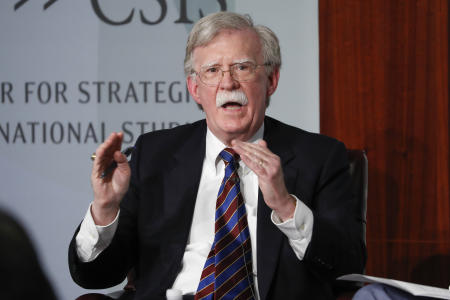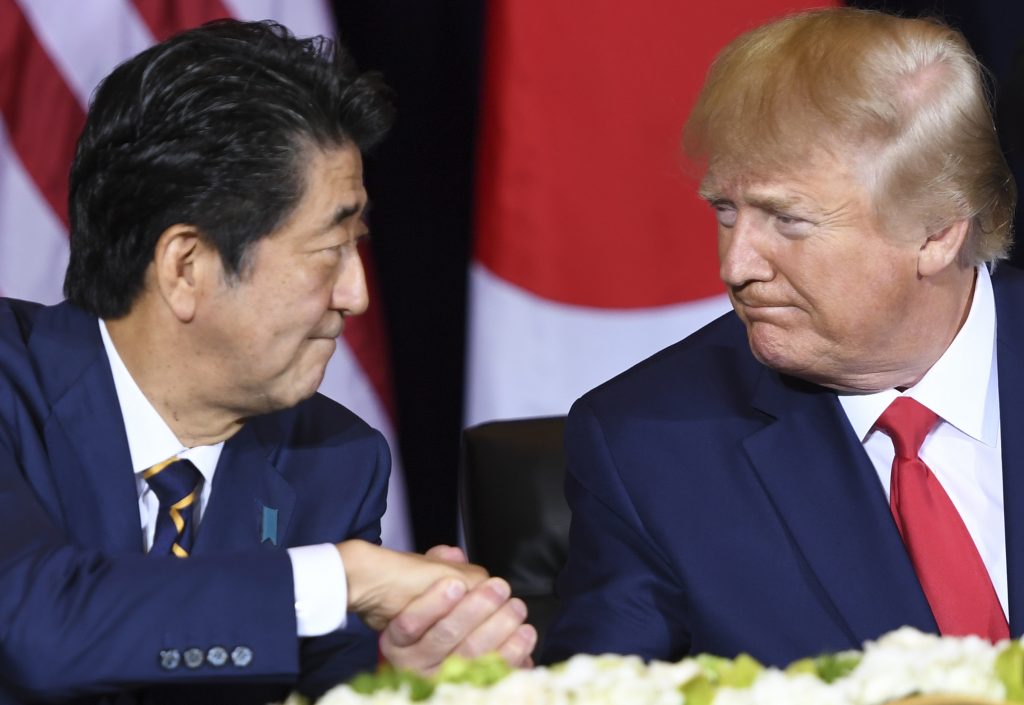



WASHINGTON: A possible US President Donald Trump win in the November presidential election could lead to a reduction in US forces in Japan or the military’s withdrawal from the Asian country, former US National Security Adviser John Bolton has said in an interview with Jiji Press.
Asked about a recent media report that the Department of Defense has presented an option of reducing troops in South Korea, Bolton said in the interview, held on Tuesday, “I don’t think it’s likely that he (Trump) will make that decision before the November election because I think it would be unpopular with many Republicans.”
But Bolton added, “If he’s re-elected and doesn’t need to face the voters again, the political downside for him of some of these decisions is considerably reduced. So the risk of a reduction of US forces in South Korea or Japan or Europe after the election is much greater than before the election.”
As Trump has repeatedly complained about the “unfairness” of the US-Japan security alliance, “the next logical move is to say he’s going to consider withdrawal or reduction” of US troops in Japan, Bolton suggested.
In a book he published last month, Bolton revealed that Trump had demanded Japan shoulder 8 billion dollars of the costs for the US military presence in the country.
He mentioned the 8 billion dollars as “Trump’s, kind of, opening number,” saying that he believes that “at some level there was a lower figure between 8 billion dollars and the current base support level that Trump would agree to as a compromise.”
Meanwhile, Bolton suggested that Japanese Prime Minister Shinzo Abe’s good personal relationship with Trump could have positive effects for Japan in its negotiations with the United States on costs for US bases in Japan.
On North Korea, Bolton wrote in his book that he had tried to include a paragraph on the issue of Japanese abductees in the reclusive country in a joint statement issued at a summit between Trump and North Korean leader Kim Jong Un in Singapore in June 2018.
“It was to stress the importance of the issue certainly for Japan but for all of us,” Bolton said. “Nobody likes to have their citizens being kidnapped by a foreign government.”
But the North Korean leader “didn’t really want to talk about it,” Bolton revealed, quoting him as saying that “Japan and North Korea had reached agreement on certain aspects of it before.”
Bolton, born in Baltimore in 1948, served as assistant secretary of state from 1989 to 1993, as undersecretary of state for arms control and international security affairs from 2001 to 2005 and as US ambassador to the United Nations from 2005 to 2006.
He was appointed as Trump’s national security advisor in April 2018. After conflict with the president on policies including on North Korea, however, he left the post in September 2019.
With Trump now appearing to be on the back foot ahead of the November presidential election, Bolton is worried about an “October surprise,” suggesting that the incumbent president may try to boost his popularity by using North Korea-related issues.
“The purpose of an October surprise is to do something dramatic a few weeks before the election that throws everything into confusion again,” Bolton explained. “A meeting with Kim Jong Un or announcing an agreement ending the war on the Korean Peninsula, something like that, Trump could consider to be in his interests.”
Bolton is skeptical that Pyongyang would agree to give up its nuclear program.
As for Trump taking an increasingly strong stance against China on human rights issues including the situation in Hong Kong, Bolton argued that the president’s decisions are “not based on philosophical convictions or grand strategy” but frequently “based on his concern to minimize the negative political reaction in the United States.”
JIJI Press